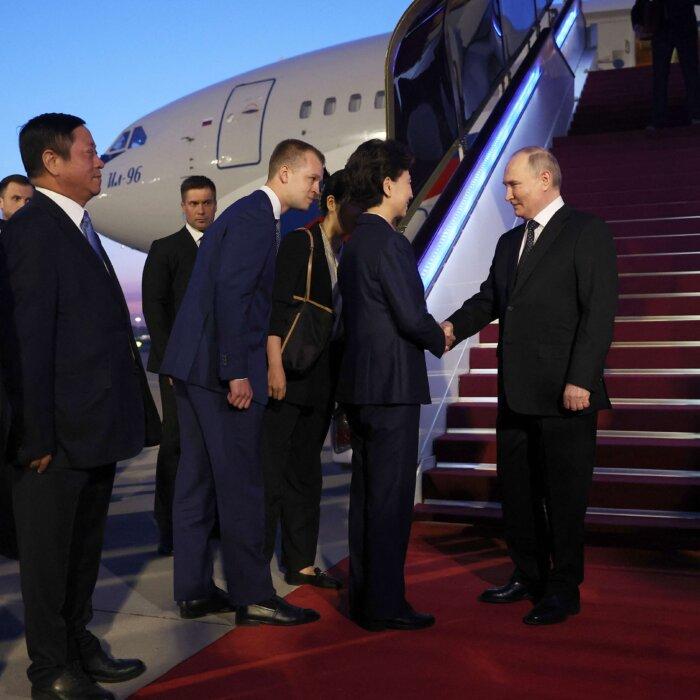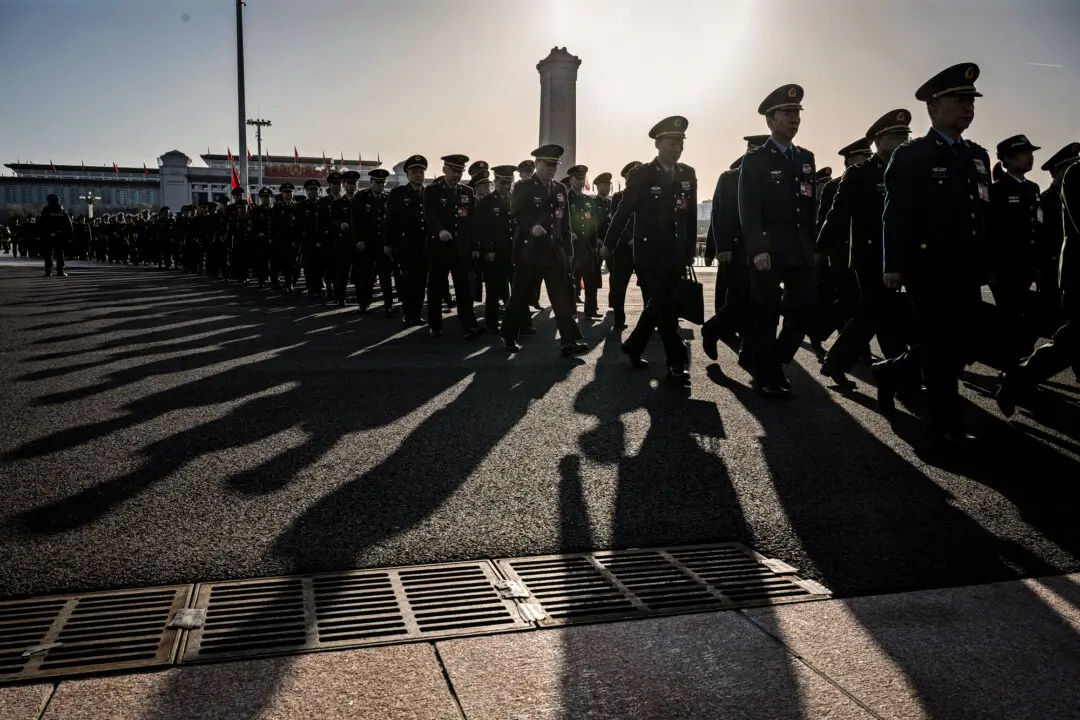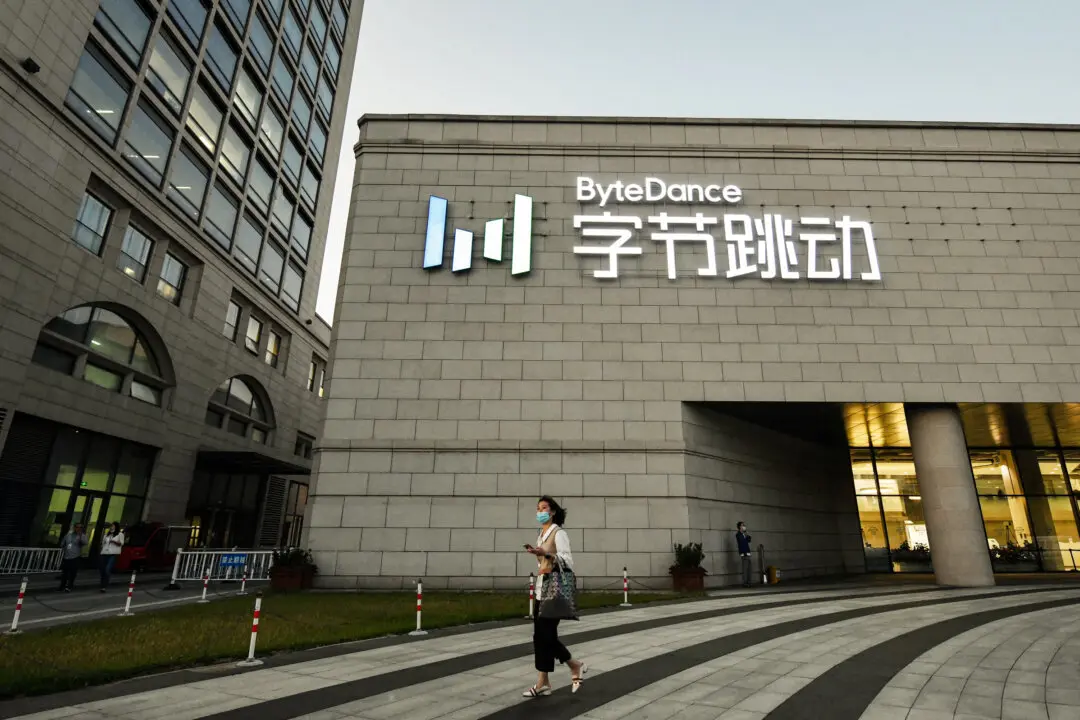The Chinese communist regime’s Ministry of State Security has denied that all arrivals in China face mobile phone inspections amid increasing concerns and criticism over its newly expanded national security regulations that take effect in July.
The ministry said in a May 28 statement that the new regulations are designed to combat espionage activities and have “clear and strict inspection standards” to follow. However, China observers have expressed concerns about the rules’ lack of clarity and implementation.
In the statement posted on the Chinese social media platform WeChat, Chinese authorities refuted the claim that all international arrivals have to undergo cellphone inspections upon entry, saying that it is “absolutely preposterous” and accusing “hostile overseas anti-China forces” of “distorting the truth.”
On April 26, the Ministry of State Security issued two national security regulations that give the ruling Chinese Communist Party’s (CCP) security personnel the power to inspect the electronic equipment of all arrivals in China. Since the new regulations don’t specify whether the inspection will only be limited to returning Chinese citizens, outside observers have been concerned that foreigners may also face mandatory cellphone checks when entering China.
Although the regulations will take effect on July 1, customs in Shenzhen, Shanghai, and other places have reportedly started implementing them early this month. However, The Epoch Times couldn’t independently verify that claim.
In the May 28 statement, CCP authorities said that the inspection targets “individuals or organizations related to counter-espionage work, such as suspected spies who take pictures or videos in military restricted areas or classified units.”
Wu Se-Chih, a researcher at the Cross-Strait Policy Association in Taiwan, told the Chinese edition of The Epoch Times on May 29 that the main challenge lies in determining who qualifies as a spy and what constitutes a leak or theft of secrets, as there is no independent judicial operation or objective standards.
“Obviously, all of this comes from Beijing’s own arbitrary view to label what it considers to be a violation of national security or to be likely to subvert the CCP’s regime,” he said.
Mr. Wu pointed out that the new rules could be used as a tool for the CCP’s hostage diplomacy or as leverage when negotiating with foreign governments.
Violation of Citizens’ Rights
Lai Jianping, a former Beijing lawyer and chairman of the China Alliance for Democracy and Justice in Canada, questioned the implementation of the regulations.“In fact, these institutions and these personnel may completely go astray when they implement the regulations to handle cases,” Mr. Lai said. “These rules and standards may be useless and completely for show because of two reasons.”
He said the first reason is that these so-called regulations are ambiguous and can be interpreted arbitrarily.
“What does it mean to carry out national security or counter-espionage work?” Mr. Lai said. “The nature of such work is completely subjective in its execution. At any time, they can say that they are carrying out tasks related to counter-espionage work.”
He said that the second reason is that when the procedure is completely violated and the legitimate rights and interests of citizens are infringed, “they have no way to defend their rights because the entire regime is an authoritarian power system without the rule of law.”
“Thus, some of these regulations are just empty words with no way to enforce them. The problem isn’t in setting rules and regulations but their actual implementation,” Mr. Lai said.
In July 2023, the CCP implemented its new sweeping “Anti-Espionage Law,” and in May, the revised “Law on Guarding State Secrets” went into effect. These laws have expanded the powers of the CCP’s national security personnel. Still, the public and international community also question their provisions and definitions because of their vague and ambiguous wording, which raises concerns over foreign businesses’ increased risks in China.
Mr. Lai said that, combined with these two laws, the new regulations that will take effect in July show that a complete set of mechanisms to strengthen social control has been established.
“This mechanism is clearly against China’s Constitution and the CCP’s own laws and is clearly infringing upon the basic human rights and freedoms of Chinese citizens and even foreigners,” he said.
“Therefore, not only are the Chinese people opposed to it, but it has also caused widespread criticism around the world.
“Many foreign citizens and governments are shocked and disappointed by the CCP’s legal mechanism. Thus, they wouldn’t want to travel to China for tourism or business. In short, they dare not go to China.”






